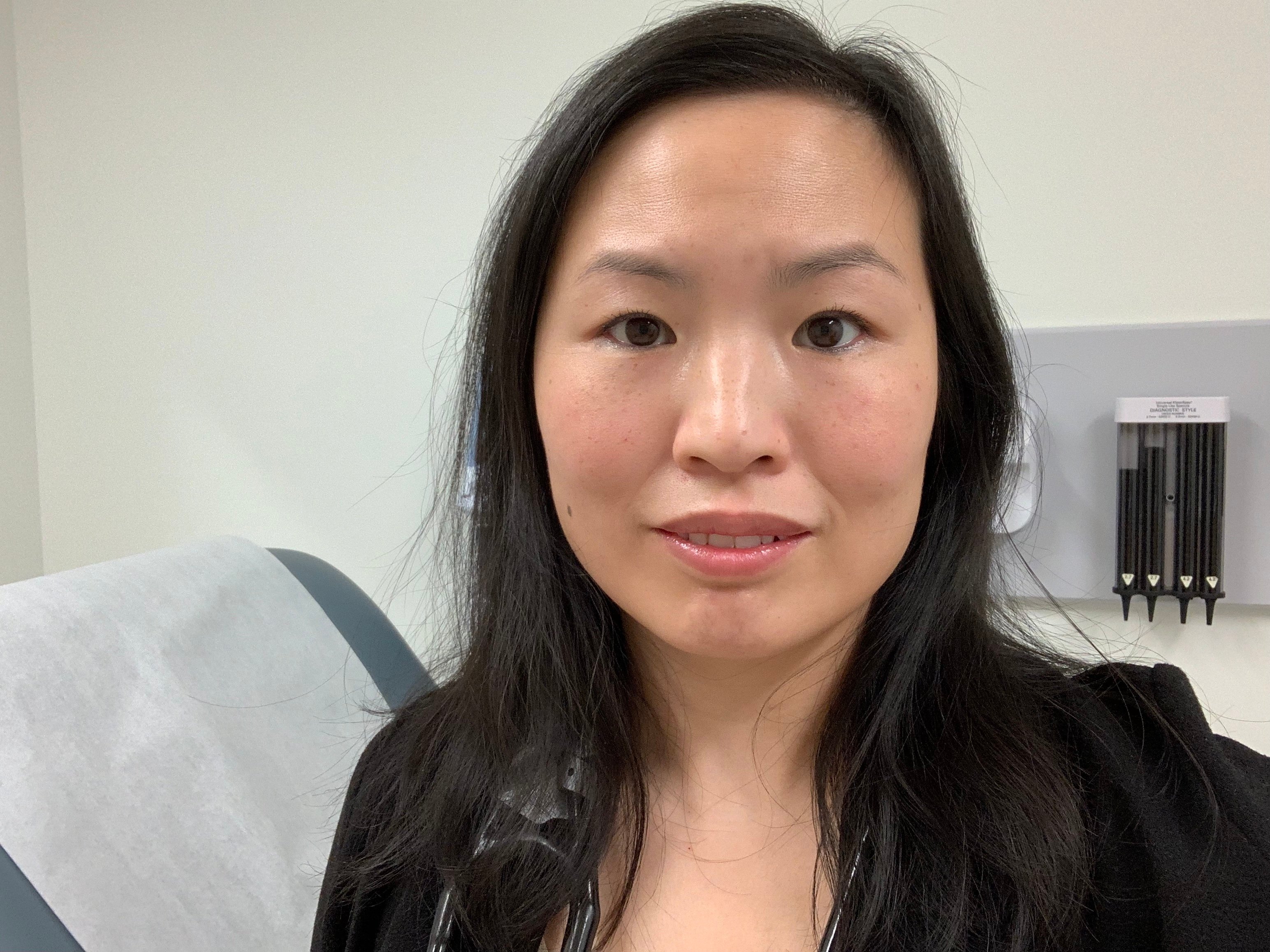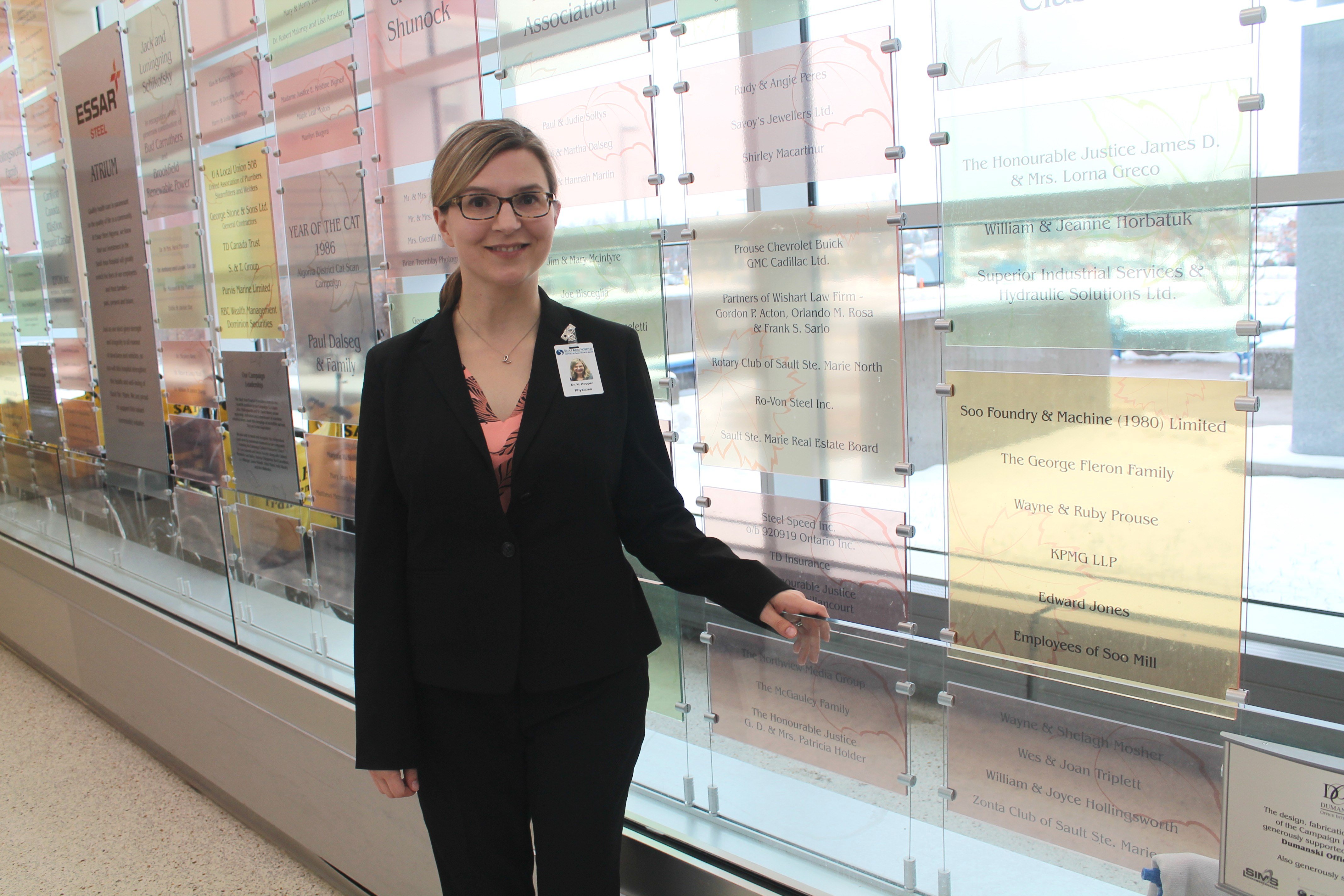The Healthy Aging Project at the Algoma Ontario Health Team aims to improve care pathways for older adults living with frailty.
The Algoma Ontario Health Team was formed to improve co-ordination of care for Algoma communities by creating a network where patients will have access to the right care, right team and right care setting when they need it. This includes seamless transitions throughout a patient’s care journey in a system that is understandable, digitally enabled and collaborative.

Family physician Dr. Winyan Chung, who practises with the Algoma District Medical Group/Group Health Centre, and geriatrician Dr. Katriina Hopper, who is head of Service of Geriatrics and Healthy Aging at Sault Area Hospital, co-lead the Healthy Aging project at the Algoma OHT and are looking to help residents living with frailty.
Realizing that there was a need in their patient population, Dr. Chung and Dr. Hopper combined their expertise in treating frail and elderly and leveraged their connections through the OHT to successfully implement the Healthy Aging Project.
The physicians hope that more doctors are inspired to get involved with OHTs. “The physician role is very important, it’s collaborative, consensus building, and more physicians need their voices heard in their communities. It is the future of health care.”
The Algoma OHT has opened the door to bigger opportunities for physicians to access what they need to better the health of the aging population because of the newfound collaboration within the community at large, Dr. Chung said. This new venture is an opportunity to be innovative. There is a greater sense of mission of being a physician, said Dr. Hopper.
Photo: Dr. Winyan Chung is a family physician who practises with the Algoma District Medical Group/Group Health Centre and co-leads the Healthy Aging Project at the Algoma Ontario Health Team with Dr. Katriina Hopper. The project brings together local health professionals within their OHT network to improve care pathways for older adults living with frailty.
Algoma is a small region in northern Ontario that is highly populated by seniors. One in four adults aged 65 and older who call the community home, live with frailty, a geriatric syndrome characterized by reduced strength, endurance and physical function.
The Provincial Geriatrics Leadership Office predicts that by 2040, almost 11,000 Algoma residents will be living with frailty.
“Frailty is a major risk factor for falls. Algoma sees a higher rate of hospitalization for falls compared to the rest of Ontario,” Dr. Hopper said.
Older adults are now experiencing more frailty because of disruption of services due to the pandemic.
Identifying frailty early can improve the quality of life for patients, increase intervention success and delay the need for specialist care.
“Algoma’s older adults living with frailty, especially those who have potential to improve with intervention, are one of the first groups that we hope to impact through our projects,” Dr. Chung said. She also added that they are trying to identify and screen for frailty regardless of where a patient lands on the clinical frailty scale to implement appropriate measures to improve and maintain functionality or to manage those with more severe frailty and provide appropriate support within the community.

Dr. Hopper and Dr. Chung continued to explain that to do this, they’re bringing together local health professionals within their OHT network including primary care, community partners, specialty care partners linked with services in Sudbury, and they have connections with Rehab Care Alliance at the provincial level, to co-design improved care pathways for older adults living with frailty. Clinicians of local Indigenous communities have also been a great partner by sharing their experiences and collaborating on solutions, having faced many of the same issues in Algoma.
Dr. Chung and Dr. Hopper explained how the linkages formed within their OHT have helped bring key providers together more seamlessly, allowing patients to have timely access to the care they need. Dr. Hopper shared that being part of an OHT has benefited the Healthy Aging project and she “would encourage more physicians to get involved with an OHT because it is a different type of work. It means being able to impact change on a health system level versus an individual level. It is part of the future of health care.”
Photo: Dr. Katriina Hopper is head of Service of Geriatrics and Healthy Aging at Sault Area Hospital and co-leads the Healthy Aging Project at the Algoma Ontario Health Team with Dr. Winyan Chung. The project aims to identify frailty early, allowing older adults experiencing frailty to have timely access to the care they need, maintain functionality and delay the need for specialist care.
The ability to identify frailty early and understand where it is on the spectrum is important, in both trying to prevent it and putting patients in touch with the appropriate services.
With the formation of the Algoma OHT, the program was able to leverage more open communication avenues and building co-ordinated access to care, enabling patients to know where they are going on their health journey and preventing things from slipping through the cracks. Learn more about the Algoma OHT.
In response to the challenges experienced by older adults and their caregivers throughout COVID-19, the Healthy Aging Working Group finalized the Algoma COVID-19 Pandemic Recovery Plan for Older Adults and their Caregivers. This plan is about taking lessons learned from COVID-19 to improve care for older adults while building and implementing new, innovative programs at the same time
As part of the Pandemic Recovery Plan, the Healthy Aging team is working to improve outcomes for older adults at risk for falls related to frailty using the Rehabilitative Care Alliance Pathways. These pathways include evidence-based information for primary care providers and emergency departments on how to connect frail older adults who fall with rehabilitative care to prevent additional falls and further functional decline. This work is set to launch in primary care the emergency department in late winter 2022